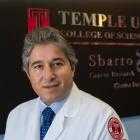15 May Anticancer Effects of Two Strains of Tomatoes Explored
MedicalResearch.com Interview with:
Antonio Giordano MD PhD
Sbarro Institute for Cancer Research and Molecular Medicine and Center for Biotechnology
College of Science and Technology
Temple University, Philadelphia, Pennsylvania
MedicalResearch.com: What is the background for this study? What are the main findings?
Response: The Mediterranean diet is considered to be one of the healthiest nutrition patterns. Tomatoes, in particular, which are consumed worldwide, and a basic ingredient of the Mediterranean diet, have been postulated to have a cancer preventive role at least for some tumor types, although few studies analyzed the effects of tomatoes in their entirety in different stages of cancer progression.
Here, we focused on an in vitro model of gastric cancer because it is still one of the most common and deadly cancers and its development is strongly influenced by certain eating habits. Our results showed a possible role of tomatoes against typical neoplastic features. The treatment with tomato extracts affected the ability of cancer cell growth both in adherence and in semisolid mediums. Moreover, tomato extracts affected key processes within the cell; they hindered migration ability, arrested cell cycle through the modulation of retinoblastoma tumor suppressor family proteins and specific cell cycle inhibitors, and induced cancer cell death through apoptosis.
MedicalResearch.com: What should readers take away from your report?
Response: This study shows that tomato antitumoral effects were not related to known properties of specific components, such as lycopene, but rather, suggest that tomatoes should be considered in their entirety and distinct species to exert different effects, in different stages of a certain neoplasm.
MedicalResearch.com: What recommendations do you have for future research as a result of this study?
Response: Our results prompt further assessment of nutrigenomics studies. My research group at the Sbarro Institute for Cancer Research and Molecular Medicine, Temple University, particularly with my Collaborator Dr. Daniela Barone, from the National Cancer Institute “Pascale” of Naples, will analyze the potential use of specific nutrients not only in the cancer prevention setting but also as a supportive strategy along with conventional therapies. We need to understand how individual patients can benefit the most from dietary interventions in all phases of certain diseases, from development to progression and treatment.
MedicalResearch.com: Is there anything else you would like to add?
Response: Eating habits and life style play an important role in tumor development and progression, as it was estimated that about one-third of cancer cases could be avoided by simply changing diet. So we have to pay close attention to the foods we choose, not only daily, but also when undergoing therapeutic treatments such as chemo-radiotherapy.
MedicalResearch.com: Thank you for your contribution to the MedicalResearch.com community.
Citation:
Note: Content is Not intended as medical advice. Please consult your health care provider regarding your specific medical condition and questions.
More Medical Research Interviews on MedicalResearch.com
[wysija_form id=”5″]
Last Updated on May 15, 2017 by Marie Benz MD FAAD

